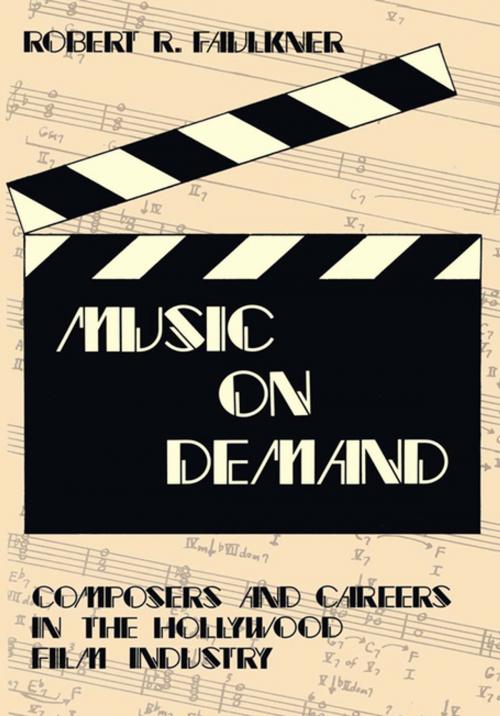Music on Demand
Composers and Careers in the Hollywood Film Industry
Nonfiction, Social & Cultural Studies, Social Science, Sociology, Entertainment, Music| Author: | ISBN: | 9781351504157 | |
| Publisher: | Taylor and Francis | Publication: | September 29, 2017 |
| Imprint: | Routledge | Language: | English |
| Author: | |
| ISBN: | 9781351504157 |
| Publisher: | Taylor and Francis |
| Publication: | September 29, 2017 |
| Imprint: | Routledge |
| Language: | English |
In this remarkable study, Robert R. Faulkner shows that the Hollywood film industry, like most work communities, is dominated by a highly productive and visible elite who exercise major influence on the control of available resources, career chances, and access to opportunity. Faulkner traces a network of connections that bind together filmmakers (employers) and composers (employees) and reveals how work is allocated among composers and the division of labor within the Hollywood film community, using statistical analysis and highly revealing personal interviews. One of the very first empirical studies in the ""new economic sociology,"" Music on Demand shows the dynamics of markets constituted by the interaction between buyers and artistic talent (the producers and directors of feature films) and the sellers of artistic talent (the composers of film scores).Faulkner's interviews with those composers considered to be elite and those on the industry's periphery reveal how they perceive their careers, how they define commercial artistic success, and how they establish, or try to establish, those vital connections with filmmakers. Now available in paperback, this pioneering study will be of compelling interest to researchers in culture studies as well as readers interested in learning more about this little-known world.
In this remarkable study, Robert R. Faulkner shows that the Hollywood film industry, like most work communities, is dominated by a highly productive and visible elite who exercise major influence on the control of available resources, career chances, and access to opportunity. Faulkner traces a network of connections that bind together filmmakers (employers) and composers (employees) and reveals how work is allocated among composers and the division of labor within the Hollywood film community, using statistical analysis and highly revealing personal interviews. One of the very first empirical studies in the ""new economic sociology,"" Music on Demand shows the dynamics of markets constituted by the interaction between buyers and artistic talent (the producers and directors of feature films) and the sellers of artistic talent (the composers of film scores).Faulkner's interviews with those composers considered to be elite and those on the industry's periphery reveal how they perceive their careers, how they define commercial artistic success, and how they establish, or try to establish, those vital connections with filmmakers. Now available in paperback, this pioneering study will be of compelling interest to researchers in culture studies as well as readers interested in learning more about this little-known world.















